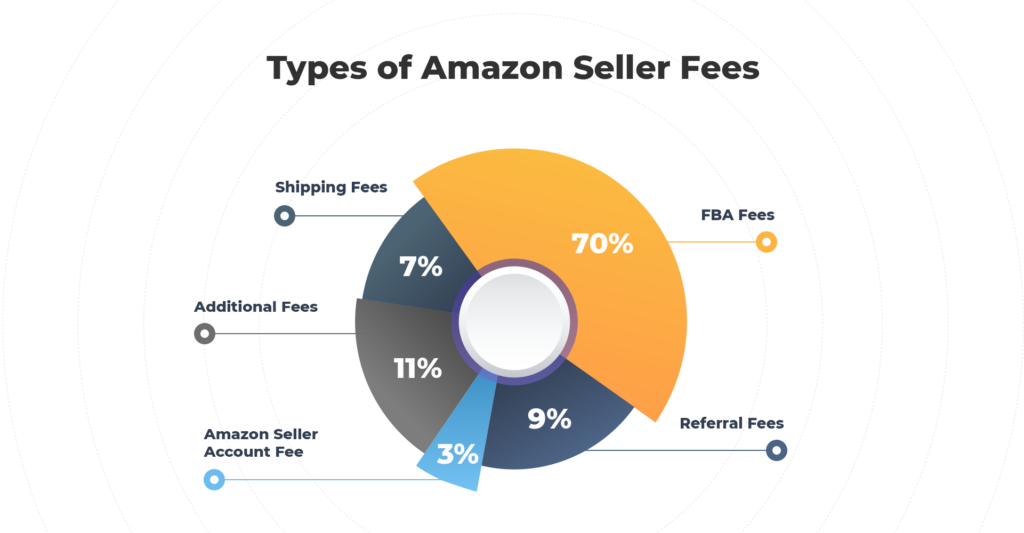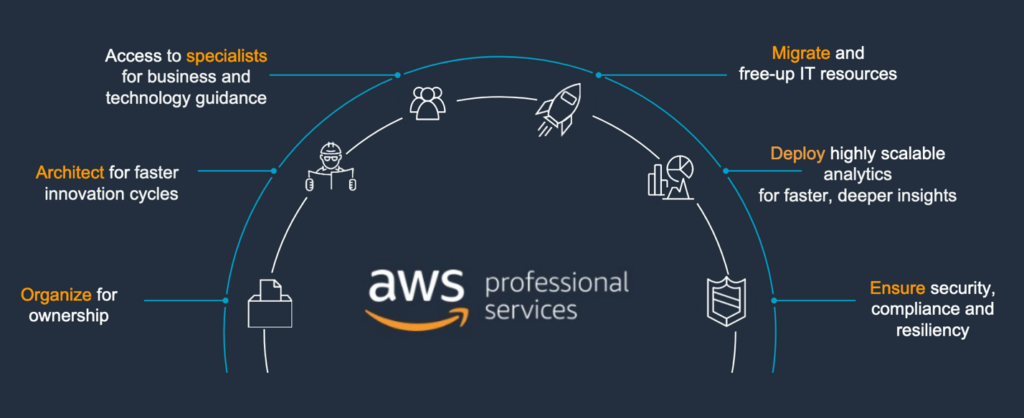Embarking on the cost start for an Amazon business is a thrilling venture. That holds the promise of financial independence and entrepreneurial success. In the ever-evolving landscape of e-commerce, Amazon stands as a global giant, offering a platform for millions of sellers. To showcase their products to a vast and diverse audience. However, behind the allure of online entrepreneurship lies a complex financial landscape that demands careful consideration.
In this exploration, we delve into the essential question that echoes in the minds of aspiring Amazon sellers. How much does it cost to start an Amazon business? Unraveling the layers of expenses, from initial investments to ongoing operational costs. It is crucial for those seeking not only to launch a business. But to navigate the competitive terrain of the Amazon marketplace successfully.
Initial investment:

Launching an Amazon business begins with a critical phase of making the initial investment. Entrepreneurs must choose between an individual seller plan, suitable for those testing the waters, and a professional plan. Which incurs a monthly subscription fee but offers added benefits. This investment covers essential elements like product sourcing and inventory management. Selecting products wisely is crucial, as costs associated with sourcing can vary based on factors such as complexity and quantity.
Additionally, inventory costs must be considered, including storage fees at Amazon’s fulfillment centers for those opting for Fulfillment by Amazon (FBA). Striking the right balance between cost-effectiveness and quality in the initial investment phase is pivotal for laying a strong foundation.
Product sourcing and inventory:

Navigating the complex landscape of product sourcing and inventory management is a key aspect of starting an Amazon business. The costs associated with product sourcing depend on the chosen method. Whether through wholesale suppliers or direct manufacturing. Entrepreneurs must carefully evaluate factors such as product demand, competition, and potential profit margins. Inventory management involves understanding and accounting for storage fees, especially if utilizing Amazon’s FBA service.
Efficient inventory planning ensures a steady supply of products to meet demand while minimizing storage costs. Overall, a strategic approach to product sourcing and inventory management. It is crucial for optimizing costs and maximizing profitability on the Amazon platform.
Amazon seller fees:

Navigating Amazon’s seller fees is a critical component of understanding the financial landscape. Amazon charges referral fees, typically a percentage of the product’s sale price, and sellers must factor this into their pricing strategy. Opting for a professional selling plan incurs a monthly subscription fee. Those utilizing FBA face additional fees for storage and order fulfillment.
Sellers should carefully calculate these costs to ensure competitive pricing while maintaining profitability. Understanding the intricacies of Amazon’s fee structure is fundamental for accurate financial planning and sustainable business growth.
Cost of Amazon business shipping and freight:

Effective management of shipping and freight costs is essential for a seamless Amazon business operation. Sellers need to determine whether to handle shipping themselves or utilize Amazon’s FBA service, considering the associated costs. International sellers must factor in customs duties, taxes, and freight charges when sourcing products globally. The logistics of transporting products to Amazon’s fulfillment centers should be streamlined to minimize expenses.
A strategic approach to shipping not only ensures timely delivery to customers but also contributes to overall cost efficiency. Which enhances the competitiveness of products in the Amazon marketplace. Careful consideration of shipping and freight costs is imperative for creating a reliable and cost-effective supply chain.
Amazon Professional services:

While not obligatory, many Amazon sellers find value in investing in professional services to enhance their brand and product presentation. Services such as professional product photography, graphic design for branding, and compelling copywriting for product listings. It can significantly improve a product’s visibility and appeal to potential buyers.
While these services come with associated costs. They often result in a higher perceived value for the products, potentially leading to increased sales and customer loyalty. Sellers should weigh the investment in professional services against the potential returns. The overall impact on their brand’s image within the competitive Amazon marketplace.
Cost Start Amazon Business Marketing and advertising:

In the crowded Amazon marketplace, standing out is crucial, making an allocation for marketing and advertising expenses a strategic investment. Sellers can leverage various advertising options on the platform, such as Sponsored Product Ads, to increase product visibility and drive traffic. However, these advertising strategies come with associated costs and sellers. It needs to carefully manage its advertising budgets to ensure a positive return on investment.
Developing a well-thought-out marketing strategy that includes both on-platform and external marketing. Efforts can contribute significantly to a product’s success on Amazon. Sellers should view marketing not only as a cost but as an essential investment in building brand awareness and driving sales in the competitive e-commerce landscape.
Cost Start Amazon Business Compliance and legal expenses:

Ensuring compliance with Amazon’s policies and regulations is paramount to avoid potential pitfalls and legal issues. Sellers may need to budget for obtaining necessary licenses, trademarks, or patents, depending on their product category. Legal advice might be required to navigate intellectual property concerns or address disputes that may arise with competitors.
While legal and compliance expenses may seem like additional costs. They serve as a protective measure, safeguarding the business from potential legal challenges. Which ensures a smooth and sustainable operation on the Amazon platform.
Amazon education and training:

Investing in education and training may not be a mandatory expense. But it can significantly impact the success of an Amazon business. Courses on Amazon selling strategies, marketing techniques, and business management. Which provide valuable insights that can help entrepreneurs navigate the complexities of e-commerce successfully.
While there may be costs associated with quality educational programs. The knowledge gained can be invaluable, potentially saving the business from costly mistakes and accelerating its growth. Viewing education as an investment in the business’s long-term viability. Sellers can equip themselves with the skills and knowledge needed to thrive in the competitive Amazon marketplace.
Cost to start Amazon business in international considerations:

Expanding the scope of an Amazon business to the international market adds another layer of complexity to the cost equation. Entrepreneurs venturing into global sourcing must meticulously account for customs duties, taxes, and additional freight charges. International shipping logistics demand careful planning to ensure timely deliveries while mitigating extra expenses.
While the potential for tapping into diverse markets is vast. Understanding and budgeting for the unique challenges of cross-border trade is essential for a seamless and cost-effective international expansion.
Cost to Start Amazon Business Future proofing through technology:

In the dynamic landscape of e-commerce, staying ahead often involves embracing technology. While not an immediate expense for every startup. Future-proofing an Amazon business may include investments in automation tools, inventory management systems, and data analytics. These technologies streamline operations, enhance efficiency, and provide valuable insights for strategic decision-making.
While there is an initial cost to implementing such systems. The long-term benefits are in terms of time saved, reduced errors, and improved. Overall business performance can contribute significantly to sustained success on the Amazon platform. Considering technology as an investment in scalability and competitiveness is integral for entrepreneurs. Who are seeking to thrive in the ever-evolving world of online retail.
Conclusion:
In conclusion, starting an Amazon business involves a nuanced understanding of various costs and investments. The initial financial outlay, encompasses product sourcing, inventory management, and choosing a selling plan. Lays the groundwork for a successful venture. Navigating Amazon’s seller fees, including referral fees and optional subscription costs, is crucial for accurate pricing and sustainable profitability. Careful consideration of shipping and freight expenses. Along with the decision to leverage Amazon’s FBA service, contributes to a streamlined and cost-effective supply chain.
Investments in professional services, such as branding and marketing, can elevate a product’s presentation and market positioning, potentially resulting in increased sales. Sellers must also account for compliance and legal expenses to ensure a secure and legally sound operation. Furthermore, viewing education and training as investments in skill development can empower entrepreneurs to make informed decisions, avoiding costly mistakes.















